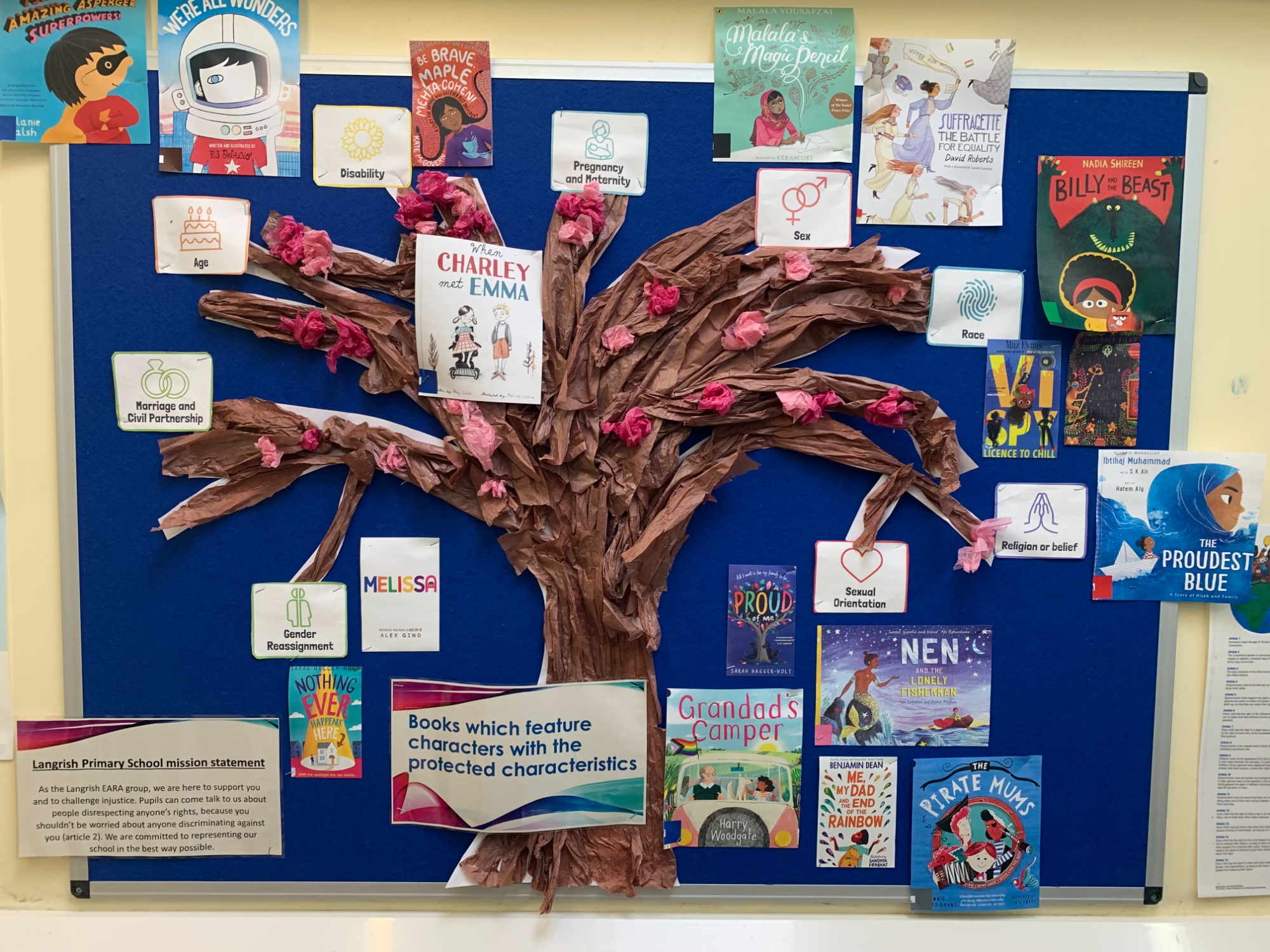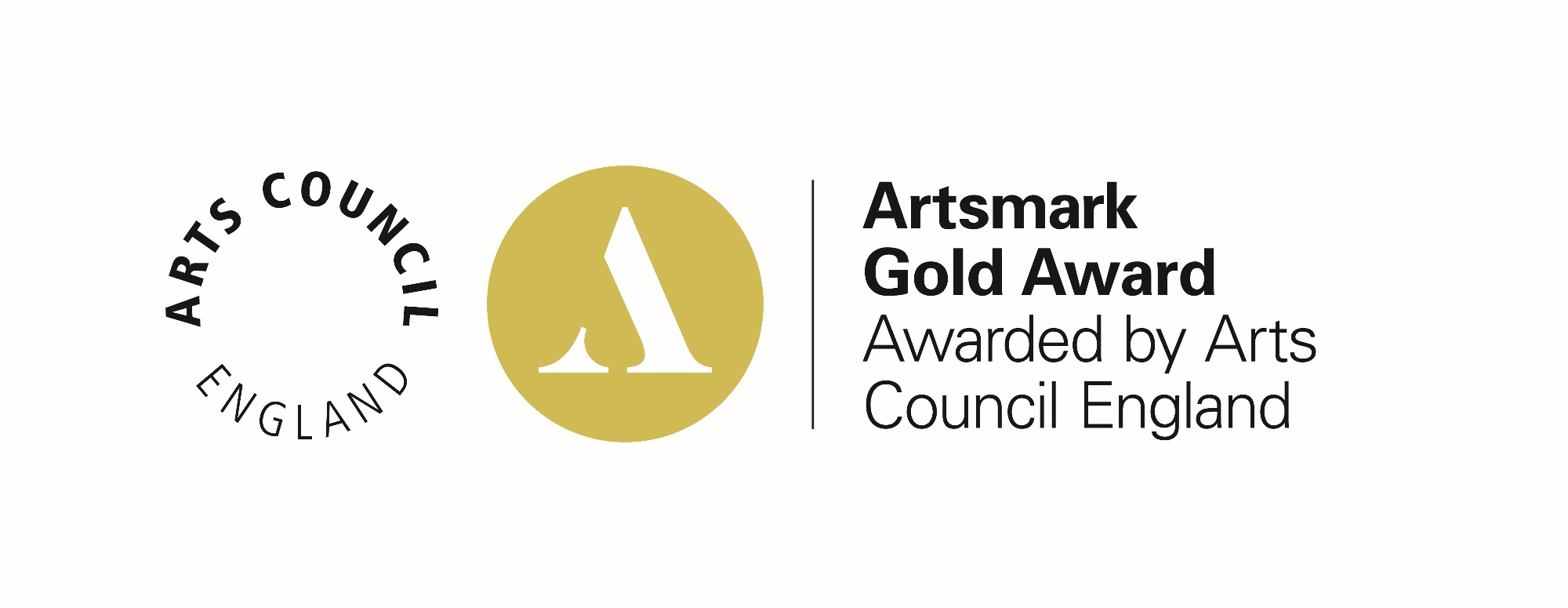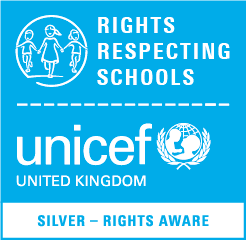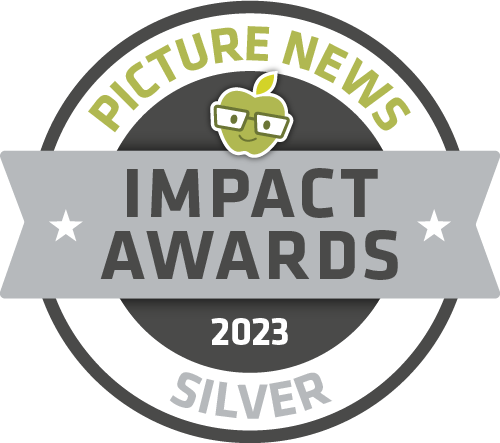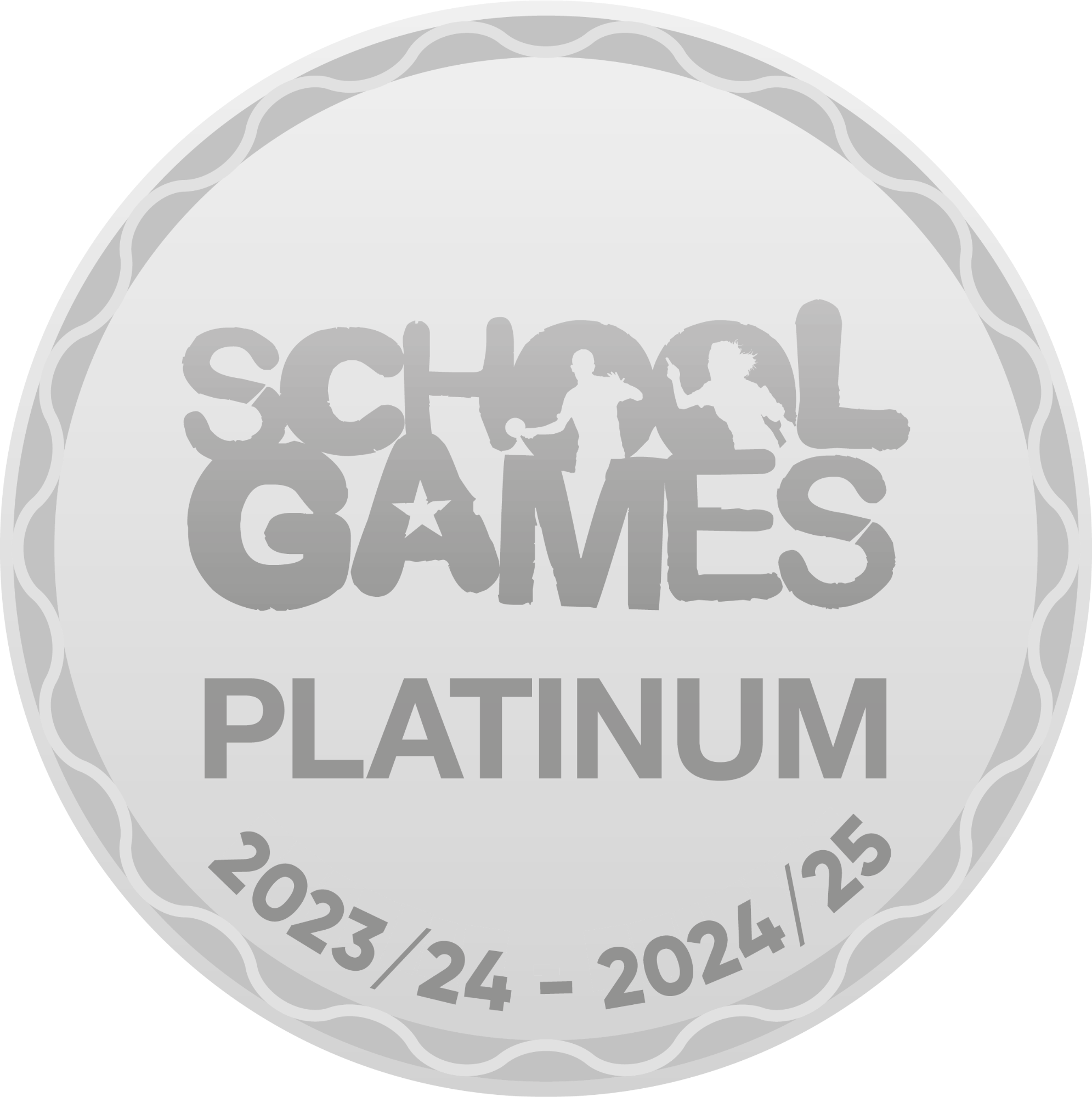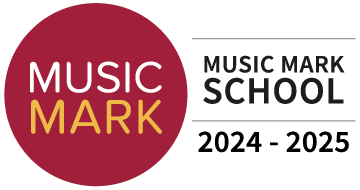PSHE
Intent
Personal, social, health and economic (PSHE) education is a fundamental part of our curriculum. PSHE lessons allow children time to explore who they are, how they relate to others and how they can continue to be healthy, happy people now and in the future. Through our PSHE curriculum, we aim to equip our children with the skills and knowledge to face everyday challenges in a positive way and to leave us with a self-regulation toolkit they can draw on for years to come. At Langrish, PSHE is also closely linked with our work on the Rights Respecting Schools Award through the United Nations Charter for the Rights of the Child.
Implementation
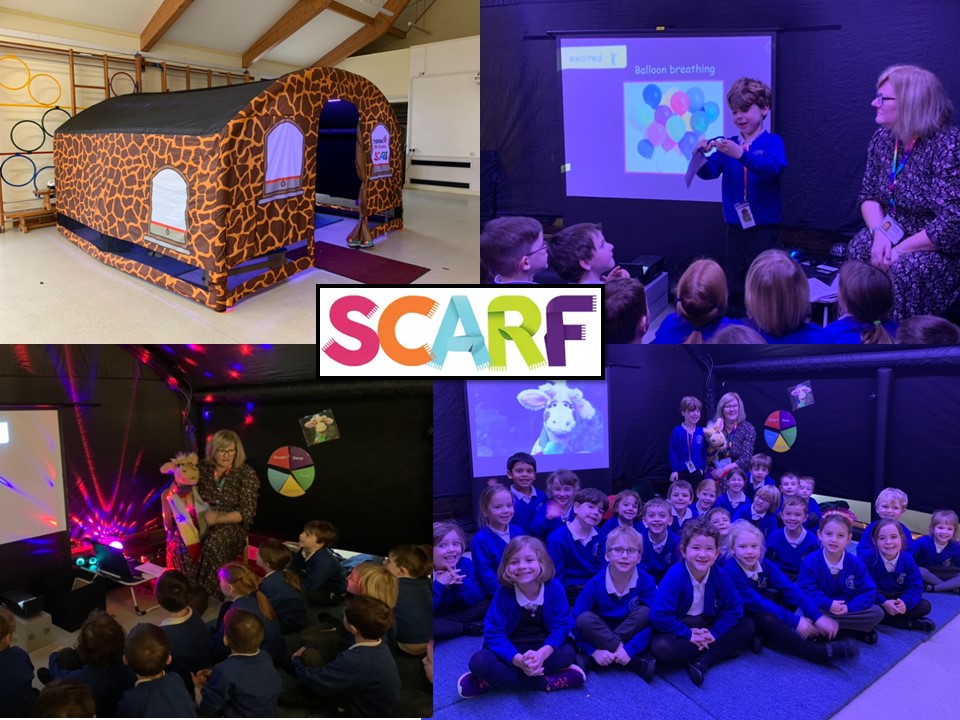
At Langrish Primary School, we follow SCARF to deliver a comprehensive programme of lessons. SCARF provides a whole-school teaching framework centred on the ‘Growth Mindset’ approach – promoting positive behaviour, mental health, wellbeing, resilience and achievement. The SCARF values are brought to life through stories of Harold the giraffe and his friends, songs, films, and thought-provoking and fun activities. As children get older, while they still cherish Harold, themes about wellbeing and relationships are explored in greater depth and resources are tailored to their age group. SCARF is also supplemented by additional lessons to strengthen understanding of key themes.
SCARF provides the framework for a whole-school approach to improving children’s wellbeing and progress, based on five values:
- Safety
- Caring
- Achievement
- Resilience
- Friendship
SCARF provides a strong foundation for children’s spiritual, moral, social and cultural education (SMSC) and development; it is at the heart of the SCARF curriculum. SCARF provides a robust framework for promoting a positive ethos and values cross the school community, contributing significantly to British Values education, both explicitly and implicitly. Content of taught units will vary for each age group but are always under the following categories:
- Me and My Relationships
- Valuing Difference
- Keeping Safe
- Rights and Respect
- Being My Best
- Growing and Changing
At the foot of this page you will find the SCARF yearly overview with a summary of content for each year group and unit. There are also Knowledge Organisers for each unit and year group which will give a greater depth overview of taught content.
The principles of PSHE education are embedded throughout the curriculum. It is taught in weekly sessions and supplemented in whole-school assemblies, with extra activities at teachers’ discretion and used when appropriate. Content from SCARF is also supplemented with content from other providers, in order to meet the needs of the school community (for example, Waves of Wellbeing in EYFS, Clever Never Goes and resources from Hampshire Safeguarding Children Partnership).
At Langrish School, we believe that children's right to be involved in decisions that affect their lives (Article 12 UNCRC) needs to be evident in all aspects of the life of the school. Pupil participation in and through our active whole school parliament has resulted in child led initiatives, such as writing a pupil anti-bullying policy, redesigning a behaviour reflection sheet and influencing a healthy lunchtime menu. These and other initiatives will continue to shape our school.
By putting the UNCRC at the heart of what we do, we are making a commitment to promote and uphold these rights. As adults, we strive to promote participation, show openness, take personal and collective responsibility, be there for all children and believe in children's capabilities and talents. We see our role as one of an activator and advocate.
The use of inquiry and participatory methods in our teaching and learning leads to greater engagement in and enjoyment of learning, as well as increased performance.
Creating a safe learning environment
When setting up any lesson that deals with potentially sensitive subjects, it’s essential to begin by creating a safe, secure learning environment. This will help children feel confident to share their ideas, values and attitudes without fear of negative feedback from their peers. A safe learning environment with clear boundaries also helps teachers to manage discussions on sensitive issues with greater confidence.
The Relationships Education (formerly SRE or RSE) resources within SCARF include specially produced films and guidance for dealing with the particularly sensitive nature of this subject. These cover creating a safe environment, handling sensitive questions and using a question box or ‘Ask it basket’.
Before getting started
In order to establish a safe learning environment, we:
- Link PSHE and emotional health and wellbeing education into the whole-school approach to supporting pupil welfare and safety.
- Work with pupils to establish ground rules about how they will behave towards each other in discussion, rather than imposing rules on them. This helps rules to be more meaningful and relevant
- Ensure that ground rules/class agreements reflect our school’s wider policies and practice in relation to managing sensitive issues.
- Provide opportunities for children to ask questions anonymously, by using a Question Box or ‘Ask it Basket’, for example. This enables children to ask questions that concern them without having to do so in front of their peers.
- Offer opportunities for pupils to discuss issues in small groups as well as sharing views with the class; this can help some children to feel more confident.
- Provide balanced information including a variety of views to help pupils clarify their own opinions (whilst being clear that behaviours such as discrimination and bullying are never acceptable in any form).
- Be aware of and sensitive to the needs and experiences of individual children that may have direct experience of some of the issues being discussed.
- Provide information to children about how they can get help and support both in school and outside, as appropriate.
- Always work within the school’s policies on safeguarding and confidentiality, in particular making it clear to children our school policies on disclosure of confidential information and following up concerns in a more appropriate setting outside lessons.
- Depersonalise discussions by using distancing techniques – stories, role-play, scenarios of real situations but with fictional characters and storylines etc.
Setting ground rules or a class working agreement
Although ground rules are most meaningful and effective when developed as a class, there are basic elements that are encouraged, including:
- Listen to and respect each other
- Use language that won’t offend or upset other people.
- Use the correct terms, and if we don’t know them, we’ll ask for help.
- Comment on what was said, not the person who said it.
- Don’t share our own, or our friends’, personal experiences.
- Don’t put anyone on the spot or ask personal questions
- We have the right to pass.
- Don’t judge or make assumptions about anyone.
What works best
Research by the PSHE Association about what teachers report to be the most effective ground rules that they work best when:
- Written in children’s own words
- Displayed in the classroom
- Monitored by children themselves
- Upheld consistently by the teacher as well as the children, without exception.
At Langrish, all classes begin the year by creating a Class Charter. These are created in collaboration with the children and linked to their rights as described in the UNCRC, in order to ensure all children are included and feel emboldened to participate in class discussions and any other activity.
Equality Act (2010)
At Langrish, we celebrate diversity and inclusion by teaching children about the Equality Act. The law states that it is illegal to discriminate against anyone because of:
- age
- gender reassignment
- being married or in a civil partnership
- being pregnant or on maternity leave
- disability
- race including colour, nationality, ethnic or national origin
- religion or belief
- sex
- sexual orientation
The Department of Education states that all children of secondary school age should be familiar with the act and the associated protected characteristics. To ensure that these characteristics are visible and regularly discussed, we celebrate them through half-termly class stories and discussions exploring both the protected characteristics, as well as themes around diversity, inclusion and the effects of isolation. To select our stories, we have consulted with parents to ensure an honest and open dialogue regarding protected characteristics and to inform them of the stories we will be sharing. The sessions begin in EYFS and KS1, where children read stories celebrating the differences between themselves and their friends, likes and dislikes and how all activities should be available to everyone, no matter their differences. As children continue into KS2, the stories become more closely aligned with the protected characteristics, including in Year 5 and 6 where stories around race and religion are discussed in alignment with other areas of their curriculum.
The People Project
Inclusion and diversity remain a hugely important aspect of our children's education; we often ask ourselves how we can broaden our children’s experience of difference when the majority of their interactions are with those of a very similar demographic. Over the past few years, we have developed the content of our reading scheme and library to better reflect diversity; through auditing our curriculum, leaders have ensured those studied are representative of broader society and last year the children thoroughly enjoyed our cultural afternoon, learning from their peers about the range of cultures in their own classes.
As part of our School Development Plan, this year we wanted to launch a new element to our PHSE curriculum, which would allow time to stop and celebrate this cultural richness in its own right. How can we equip our children to talk about others using respectful language and empathy if we do not take the time to model this discretely within a context? We wanted an exciting, whole-school approach: the People Project was born!
Using the 'How to' statements below, each half term focusses on key individuals from the given field who represent different protected characteristics:
-How to be a rockstar (music focus), celebrating our differences
-How to win a scientific prize (science focus), stereotypes
-How to inspire a nation (art focus)
-How to represent my country (sports focus)
-How to change the world (history focus)
How to improve the future (computing and design technology)
Introduced during the first week of each half-term, these statements and the individuals inspire pieces of work which celebrate their identities and achievements. Class galleries are developed over the year to capture the individuals and facilitate links back to their characteristics and achievements.
Finally, each unit of work has a PHSE theme, covered every year at some point. Three of these themes are positive: celebrating our differences, how our differences define us (KS2 explores intersectionality) and how we can help others. The other three themes look at the opposite sides of our identity: discrimination, stereotypes and prejudicial language. These themes help our pupils to understand the complexities of identity, diversity, inclusion and equity.
One of the strands of our school parliament is our EARA group, and they have been supporting Langrish by showcasing this wonderful work to parents. So far, they have designed, created, directed and written a music video and a YouTube series.


